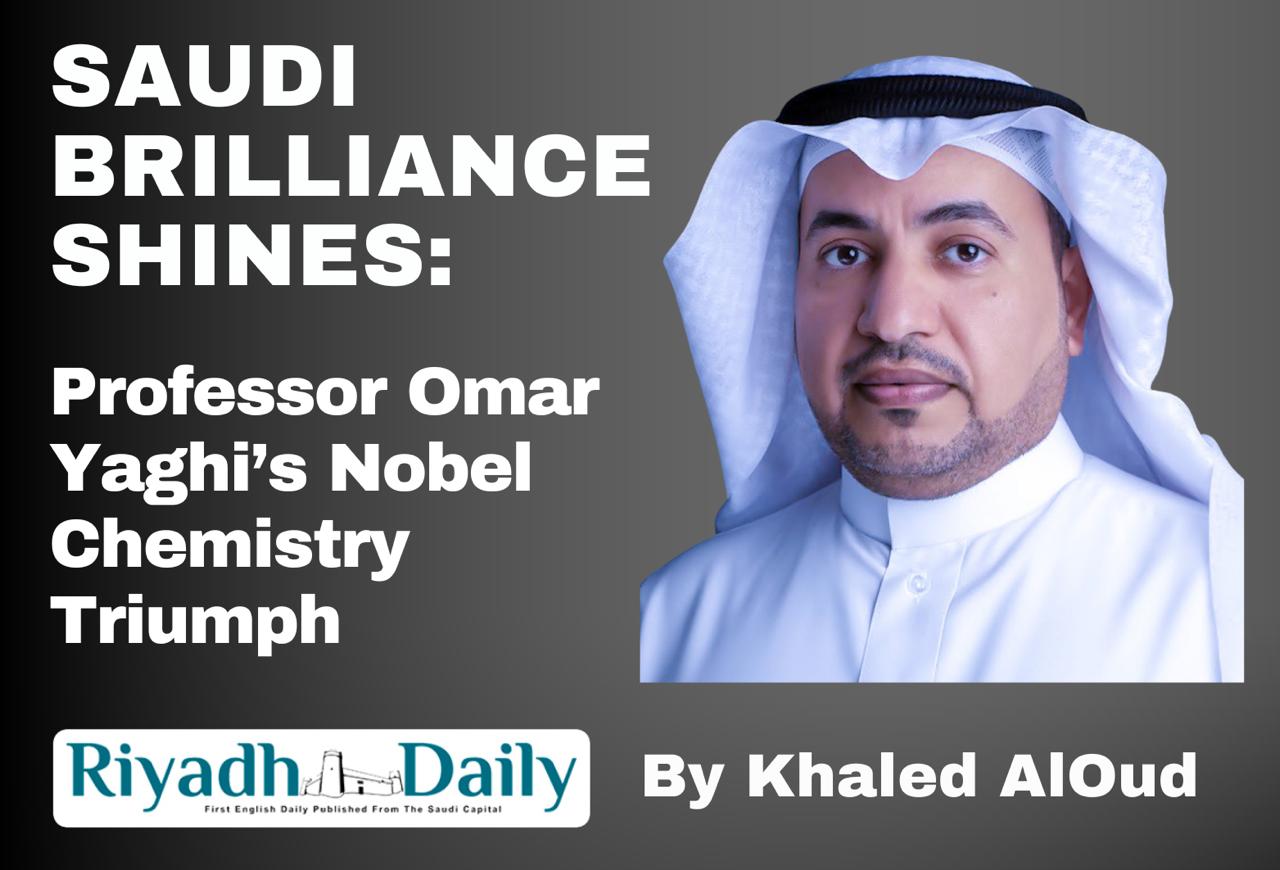
Saudi Brilliance Shines: Professor Omar Yaghi’s Nobel Chemistry Triumph
October 8, 2025, shines as a proud moment for Saudi Arabia and the global scientific community as the Royal Swedish Academy of Sciences awards the 2025 Nobel Prize in Chemistry to Professor Omar M. Yaghi, alongside Susumu Kitagawa and Richard Robson, for their groundbreaking development of metal-organic frameworks (MOFs). This recognition celebrates a Saudi efficiency that has transformed chemistry, with Yaghi’s innovative contributions standing out as a testament to his brilliance and perseverance.
Born to Palestinian refugees in Jordan, Yaghi’s journey to this pinnacle began with his move to the United States at 15, where he overcame adversity to earn degrees and rise to a professorship at UC Berkeley. His role as an advisor to Saudi Arabia’s King Abdulaziz City for Science and Technology (KACST) further ties his success to the Kingdom, making this Nobel a source of national pride. Yaghi’s work in reticular chemistry—designing porous, crystalline MOFs with surface areas exceeding 7,000 square meters per gram—has revolutionized molecular architecture, earning him this global honor.
MOFs, a brainchild of Yaghi’s vision since the 1990s, are remarkable structures capable of containing and channeling gas molecules. These sponge-like materials can adsorb carbon dioxide with up to 90% efficiency, offering a vital tool against climate change, and harvest water from desert air (up to 1.3 liters per kilogram daily), addressing water scarcity in arid regions like the Middle East. Their ability to store hydrogen for clean energy also positions them as a cornerstone of sustainability. This innovation, built on Robson’s early experiments and Kitagawa’s flexibility insights, showcases Yaghi’s leadership in creating over 100,000 MOF variants, each tailored to global challenges.
This award reflects Saudi Arabia’s growing influence in science, aligning with Vision 2030’s innovation goals. Yaghi’s achievement challenges stereotypes, proving that talent from the region can lead world-class research. However, scaling MOF production remains a hurdle due to high costs and energy demands, necessitating investment to make this technology accessible, especially in water-scarce areas where Saudi expertise could shine.
In a world facing climate crises and misinformation, Yaghi’s success reaffirms science’s power to innovate. It calls for enhanced STEM education and funding to nurture such talent, ensuring the benefits of MOFs—cleaner air, water from deserts—reach all. As we celebrate this Saudi triumph today, let us commit to supporting scientists like Yaghi, turning his chemical revolution into a legacy of hope and resilience for future generations.








